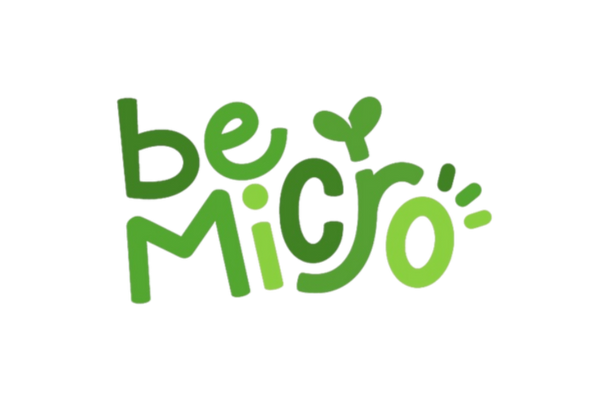
Naturally Boost your Immune System Using Nutritional Foods
Share
You’re stressed at work, sleeping poorly, and haven’t been eating as healthy as you’d like to be. Suddenly you’re sick and wishing you kept up with your healthy habits. It happens to all of us. So what’s the best way to keep your immune system in peak condition so that you can recover quickly and rise to today's challenges?
What are the signs of a weak immune system?
First off, what exactly is an immune system? The immune system is made up of many different biological processes and structures. The purpose of the immune system is to protect against disease. It does this by distinguishing between foreign cells that may be toxic to the body and regular cells that are part of a body’s normal functioning.
When you have a weakened immune system, you’re less able to protect yourself against disease or heal yourself. Some of the biggest signs of a weakened immune system are:
- Persistent colds: If you have sniffles all winter that you can’t seem to get rid of, you may have a weak immune system
- Fatigue (all the time!): We all feel tired sometimes, but if you never feel rested you might have a weak immune system
- Slow wound healing: Have a paper cut that never seems to heal?
- Stomach problems: If you have been experiencing stomach problems and you haven’t changed your diet, maybe it’s your immune system
- Stress, stress, stress: Stress causes a weakened immune system, and having a weak immune system makes you less able to deal with stress. It’s a vicious cycle
- Frequent infections or colds: If you never seem to avoid catching what’s going around, it’s time to look into boosting your immune system

How to naturally boost the immune system
Luckily, there are lots of ways to boost your immune system. Some have to do with your lifestyle choices, and some have to do specifically with what you eat. Forming your own immunity strategy will depend on your lifestyle and needs.
Top immunity boosting foods list
It can be hard to remember to make healthy choices, especially if you have a busy life and a family. With so many unhealthy but accessible foods around, it’s smart to make sure you have a plan. That’s why we made this easy list of immunity boosting foods. Keep it handy so that you can make informed, healthy choices when you’re in a hurry.
Immunity boosting foods for adults
As you age, your body becomes less able to fight off infection and disease. This is because our immune system slows down. If you’re over 65, you need to take special care to eat healthy, because nutrition is directly tied to immunity.
The Nrf2 pathway is responsible for many antioxidant and inflammation-fighting responses, so it should come as no surprise that it’s important for immunity. Eating Nrf2-activating foods is especially important for the elderly, because Nrf2 activation also slows down as we age. Try replacing your evening chamomile with a cup of Microtea Relax chamomile instead–it tastes great and has third party-tested, Nrf2-activating broccoli microgreens. Microtea even has tons of essential vitamins that we’ll talk about in the next section.
The best way to think about immunity-boosting foods is in terms of the nutrients you need, such as beta-carotene or vitamin A, vitamin C, selenium, zinc, and miscellaneous bioactive compounds.

Vitamin C: Vitamin C is the superstar of immune-boosting vitamins...and for good reason! Vitamin C is a powerful antioxidant and also supports both the innate and the adaptive immune system. Vitamin C has been shown to reduce the length of the common cold, so load up on citrus fruits (and fruit in general!) to make sure you’re consistently getting enough of this powerful vitamin.
Beta carotene and vitamin A: Beta carotene is a precursor to vitamin A. This micronutrient is super important because it helps the body produce white blood cells. White blood cells help keep pathogens out of the body. Try cubed sweet potatoes instead of corn in Mexican street corn, or order a cup of fresh carrot juice next time you hit the juice bar to get a vitamin A boost.
Selenium: This under-appreciated mineral has powerful immunity boosting effects. Studies show that not only does selenium boost immunity, it helps decrease inflammation, which also has a beneficial effect on immunity. Brazil nuts are nature’s most potent source of selenium, with over 1000% of your daily recommended value in only a handful of nuts. If you don’t like Brazil nuts, however, you can get plenty of selenium in fish like tuna, halibut, and sardines.
Zinc: Zinc is an essential mineral and plays a role in many important bodily functions, from building bone to regulating to regulating weight to protecting cells from oxidative damage. It also plays a role in immune system function. Oysters are an excellent source of zinc, but if you’re not into oyster then plain old beans are a great source of this potent mineral.
Bioactives: Bioactives are compounds that have powerful effects on our bodies, and many of these are added to foods or occur naturally in food.
Sulforaphane is a powerful bioactive compound found in cruciferous vegetables. Sulforaphane is nature’s most potent activator of the Nrf2 pathway. The Nrf2 pathway creates antioxidant proteins that counteract free radicals in order to prevent oxidative stress to, you guessed it, boost the immune system.
Curcumin is a powerful antioxidant found in turmeric. It’s what gives turmeric its bright golden color. Research shows that curcumin can beneficially modulate the effect of the immune system by activating the protective cells, such as macrophages and neutrophils, that help fight disease. Beyond Microgreens Recovery Microtea has Nrf2-boosting broccoli microgreens as well as turmeric to jump start your body’s immune system.
Mushrooms are having a moment, in part due to their powerful effects for immunomodulation. Immunomodulation is when a substance changes how the immune system works. In a clinical study of young adults, eating shiitake daily significantly improved immunity. Additionally, reishi, turkey tail, and maitake have all been shown to increase immunity.

Immunity boosting foods for kids
How do you help your picky eater boost their immunity? Rely on fruits, and sneak in micronutrients.
Fruits, especially citrus fruits, contain lots of vitamin C. The key is to make the fruit accessible…oranges and pineapples look nice in a bowl, but nobody will eat them unless it’s easy. Keep fruit chopped up in an air-tight container in the fridge. That way, they’re ready to go when your kids get hungry. Don’t overthink what you put into the fruit salad–just grab what’s on sale and in season, and mix it up!
Sneaking in micronutrients can actually be easy. Lots of healthy foods can be bought as powders that have a mild flavor and mix into anything (even desserts!). For instance, immune-boosting reishi or shiitake mushrooms can be stirred into vegetable soup or mixed into chicken salad for a sandwich. Or, try our organic, freeze-dried Broccoli Booster sprinkled onto pizza, eggs, or mac and cheese for a dose of Nrf2-boosting sulforaphane!

Immunity and lifestyle
Lots of lifestyle factors contribute to immunity, whether good or bad. For example, it’s become common to have a lot of daily stress. Navigating a career, caring for a family, dealing with political drama and the pandemic threat, all while trying to schedule time for self care and exercise...it’s a lot to cope with.
Stress and immunity
When you’re constantly rushing under a deadline, worried about something, or fearful of the future, your body is physiologically sending signals that you’re in danger. Adrenaline is constantly pumping through your system–and adrenaline inhibits immune function. That’s why stress has such a huge effect on immunity.
There are lots of ways to mitigate stress, but remember that the point is to give your body time to stop its fight or flight responses. Although more research is needed, some studies show that meditation is a side effect-free way to reduce stress and calm the nervous system.
Exercising reduces stress
Many studies have shown the beneficial effects of exercise on reducing stress.
For example, yoga is excellent for reducing stress because it calms both the sympathetic (fight or flight response) and parasympathetic (heart rate, for instance) nervous systems.
Incredibly, regular exercise has been shown to provide people with emotional resilience against stressful events. In other words, if you exercise regularly you’ll be better able to deal with a stressful life situation.

Sleep for boosting immunity
We’ve all heard it before: get 6-8 hours of sleep a night. It’s one of those things that you know you should do, but sometimes life gets busy and it’s hard to get consistent sleep every night.
It’s hard, but it’s worth it. Getting restful, consistent sleep is a huge part of maintaining immunity. Lack of sleep causes changes in cytokine signaling and function. Cytokines are protein signalers that many body functions depend on. Cytokines also have a strong effect on inflammation, which can alter your immune system function in turn.
Immunity and COVID-19
Right now, we’re all dealing with the stress of the pandemic and wondering how to best protect ourselves. New research shows that people with compromised immune systems, young or old, are at a higher risk of developing severe complications from COVID-19. That’s why it’s important now more than ever to protect yourself by increasing your immunity.

Carly Anderson Stewart MSc.
Dr. Abrar B
Learn MorePediatric physician with five years of experience in neonatology, NICU, PICU, and emergency care. Skilled in intubations and managing critical situations. As a medical author for BeMicro, focuses on nutrition for all ages, integrating evidence-based practices to improve overall health and well-being.


